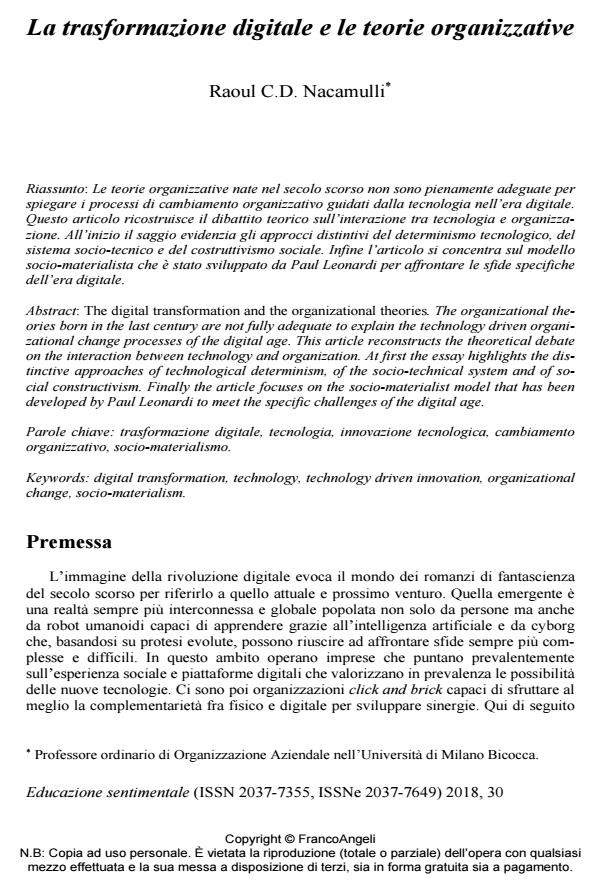The digital transformation and the organizational theories.
Journal title EDUCAZIONE SENTIMENTALE
Author/s Raoul C.D. Nacamulli
Publishing Year 2019 Issue 2018/30
Language Italian Pages 10 P. 78-87 File size 173 KB
DOI 10.3280/EDS2018-030010
DOI is like a bar code for intellectual property: to have more infomation
click here
Below, you can see the article first page
If you want to buy this article in PDF format, you can do it, following the instructions to buy download credits

FrancoAngeli is member of Publishers International Linking Association, Inc (PILA), a not-for-profit association which run the CrossRef service enabling links to and from online scholarly content.
The organizational theories born in the last century are not fully adequate to explain the technology driven organizational change processes of the digital age. This article reconstructs the theoretical debate on the interaction between technology and organization. At first the essay highlights the distinctive approaches of technological determinism, of the socio-technical system and of social constructivism. Finally the article focuses on the socio-materialist model that has been developed by Paul Leonardi to meet the specific challenges of the digital age.
Keywords: Digital transformation, technology, technology driven innovation, organizational change, socio-materialism.
Raoul C.D. Nacamulli, La trasformazione digitale e le teorie organizzative in "EDUCAZIONE SENTIMENTALE" 30/2018, pp 78-87, DOI: 10.3280/EDS2018-030010